Milk, especially cow’s milk, is a staple for many people. There’s mixed research about its health benefits, with some experts claiming it has harmful effects on your body while others say it’s very good for you.
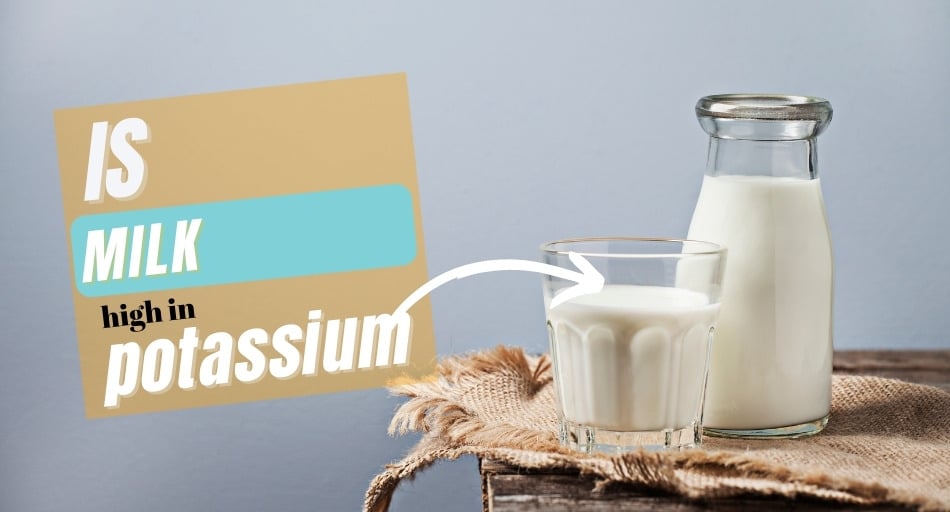
Milk is also a great source of several important nutrients, including potassium.
But if you suffer from kidney disease, you know you have to consume smaller amounts of potassium than everyone else. So, is milk a safe addition to a low-potassium diet?
Table of Contents
Is milk high in potassium?
All types of milk are considered high-potassium, as they contain more than 200 mg of this mineral in a single serving. So, you might need to limit your intake of milk if you follow a strict low-potassium diet.
On the bright side, milk contains a lot of important nutrients that help you stay healthy, including various minerals and vitamins. So, it can make for a great addition to your diet, even if in small amounts.
Can You Check Your Potassium Level at Home?
How much potassium is in milk?
One glass of whole-fat cow’s milk contains 349 mg of potassium. It’s a lot more than the standard recommended serving for a food to fit a low-potassium diet.
As a result, it might be best to limit how much milk you consume if you have kidney issues or potassium sensitivity.
What’s more, if you suffer from lactose intolerance, you might feel even worse on top of all the potassium milk contains.
Cow’s milk comes in many varieties, including those with reduced-fat. A cup of milk with reduced-fat (2% milkfat) contains 366 mg of potassium.
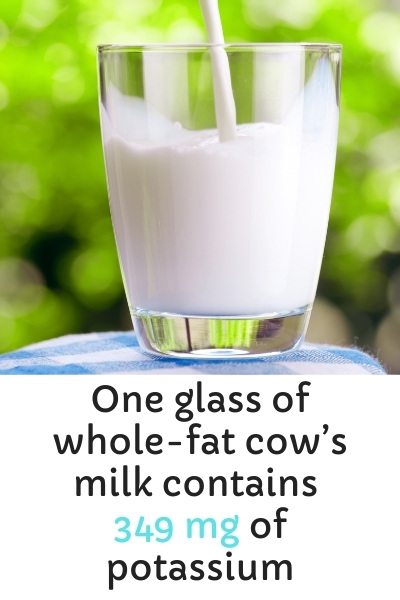
It’s still a lot, so it might not be good for a strict low-potassium diet. But if you’re looking to consume less fat, drinking milk with reduced-fat might be a good idea.
It’s still rich in various nutrients, so you won’t be missing out on these.
Is milk good for you?
Milk contains all macronutrients: carbohydrates, protein, and fat. It’s also a great source of many minerals and vitamins.
One of the most abundant minerals in milk is riboflavin. This mineral helps break down all macronutrients in milk and use them up for energy creation.
It’s also used for the development of skin tissues, digestive tract linins, and even blood cells. So, it’s important to get enough of it from your diet.
Additionally, some studies show that drinking milk and eating dairy products can help curb your appetitive.
This contributes to healthy weight loss and prevents obesity, which is a serious issue in our society these days.
Milk’s benefit in weight loss may have something to do with the high nutrient content as well as how much protein it contains.
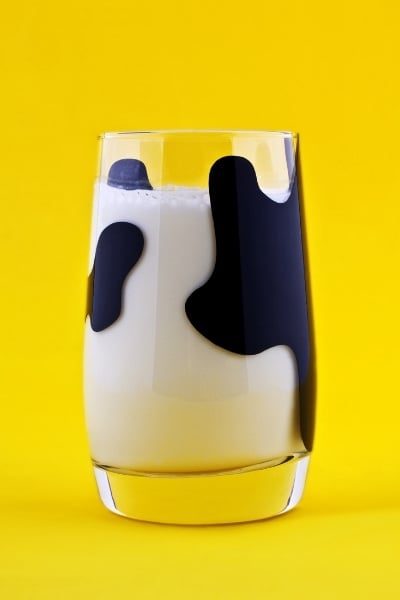
Because of that, adding milk to your diet can help you maintain a healthy weight.
Since milk is a great source of calcium, magnesium, and potassium, drinking it can also help your bones and teeth stay healthy.
These nutrients improve bone density and promote calcium absorption and bone mineralization.
In addition, these minerals help replenish your electrolyte levels and enhance exercise performance, especially in avid workout fans.
Several other studies have found that drinking cow’s milk may help lower your blood sugar levels.
This, in turn, helps fight against heart disease, stroke, and even kidney disease.
Experts believe that this is because proteins found in milk help balance out the sugar in your blood, preventing it from causing spikes in your energy levels.
Can you take in too much potassium from milk?
Milk is a high-potassium beverage. But since most people don’t drink whole glasses of milk in a single sitting, adding some milk to your diet can be safe.
It all depends on how you drink your milk – if you’re adding it to your coffee, you should be perfectly fine.
But if you drink more than one cup at once, you might want to dilute it with some water or drink smaller amounts.
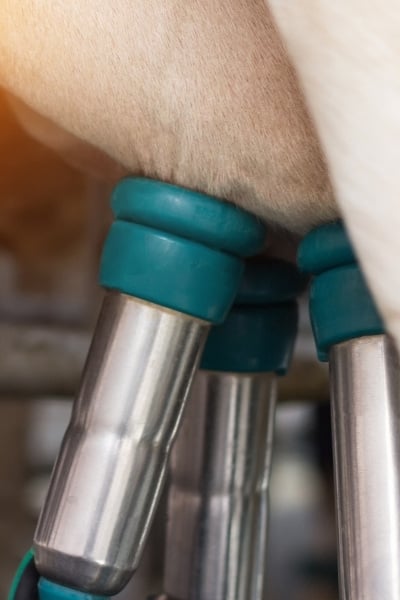
On the bright side, if you’re looking to consume milk with less potassium, you might want to try some plant-based alternatives.
These still contain potassium, but certain brands might have a much lower potassium content than animal-derived milk options.
So, it all depends on your dietary requirements.
Is canned milk high in potassium?
A half-cup serving of canned milk contains 567 mg of potassium. Canned milk is often condensed and sweetened, which increases its caloric content.
It’s also high in sugar that is associated with an increased risk of high blood sugar levels and type 2 diabetes.
So, if you’re using condensed milk, make sure to use small amounts.
Is goat milk high in potassium?
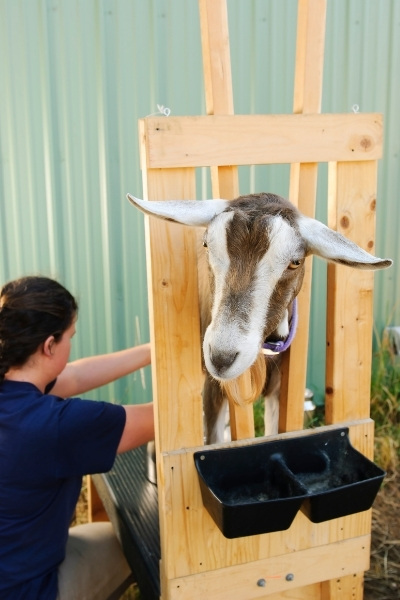
Just one cup of goat milk contains 498 mg of potassium. It’s much higher in potassium than cow’s milk, but it’s also rich in several important nutrients.
For example, it’s a great source of riboflavin, calcium, phosphorus, vitamin A, and many more.
Goat milk has an earthy flavor, which is much different from cow’s milk. As a result, it might be a great alternative to cow’s milk if you’re looking for a different flavor.
Is imitation milk high in potassium?
A one-cup serving of imitation milk contains 366 mg of potassium. This type of milk is made to resemble cow’s milk and can be used in place of dairy and lactose products.
This can be beneficial for lactose intolerant people as it contains no real milk ingredients. Imitation milk, however, contains water, vegetable fats, corn sugar, starch, vegetable protein, sodium caseinate, and stabilizers, such as gums or alginates.
It’s still high in potassium, though, so make sure to consume it in moderation if you have to follow a low-potassium diet.
Is buttermilk high in potassium?
One cup of buttermilk contains around 370 mg of potassium. This fermented milk is made from the liquid left after churning butter out of culture milk.
Because of that, it contains ‘good’ bacteria cultures that help keep your digestive system healthy and prevent many health issues.
Conclusion
All types of milk are high in potassium. As a result, people with potassium sensitivity or kidney disease should be careful with consuming too much milk.
On the bright side, if you want to add more potassium-rich foods and beverages to your diet, milk is one of the best and healthiest choices to do so.
Don't know which foods are high in potassium? Read our article, 15 Best Food Sources of Potassium. We also have a guide to this important mineral: Potassium 101: All You Need To Know About Potassium.
